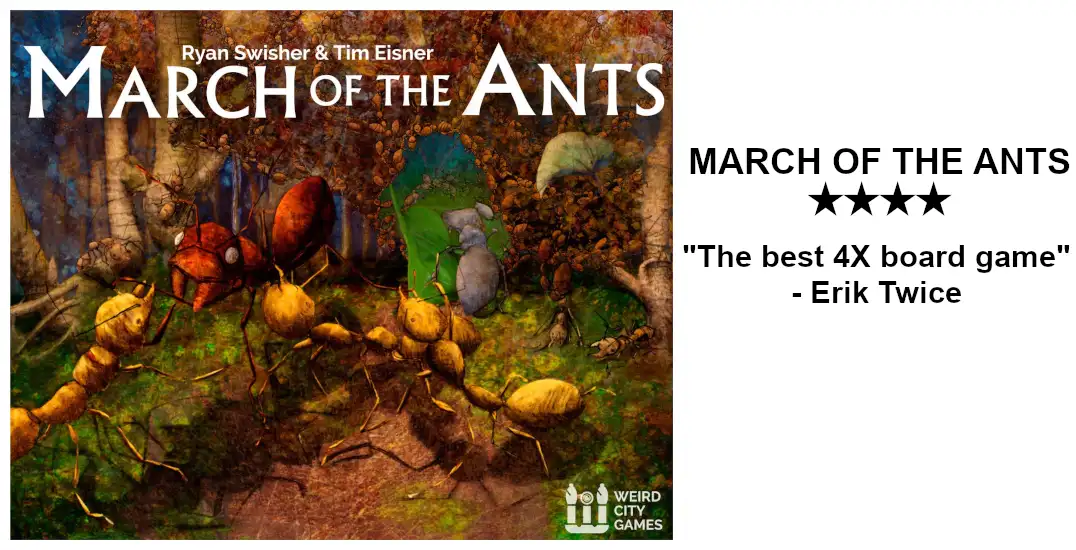
Here’s something you might not know: Critics hate review scores. In the minds of many of my colleagues, putting a score next to their articles diminishes their work. They are included out of obligation, and most believe they actively stifle quality conversation. So why do I use them? To me, review scores are not a constraint but a powerful tool of classification and discovery.
EASY RECOGNITION
The main reason I score games is to help my readers know what to read. By putting the score on the title, you gain a bit of insight into what I think. At a glance, you can tell which games I like the most and also what are my most contrarian viewpoints. There’s value in that. After all, one important reason to read reviews is to learn which games are good, which are not and why that’s the case.
No one wants to click random names on a list just to find a recommendation. I tell you, outright, what I think are the most worthwhile titles so you can find them. Similarly, if you want to read an opposing view, or simply entertain yourself by hearing about a terrible game, you can do that. Putting the score on the title has simple, obvious benefits that I would not want to do without.
Some games aren’t well-known, perhaps because they were released by a small publisher or are fairly old. I’m thinking of titles like March of the Ants, Gain Ground or Hanamikoji, which are truly fantastic. Their names mean little to most readers, but the four or five stars that follow their titles does. It’s a clear recommendation, a sign to read if they are looking for new great games.
The same happens with negative reviews. Wingspan, Deep Sea Adventure and Blood Rage have all seen widespread acclaim. If I didn’t give them a score, readers could assume my views are as positive as everyone else’s. That’s a lost opportunity to offer a different perspective on games everyone has heard about.

If you are anything like me, you probably look for both positive and negative reviews at the same time! Whenever a game piques my interest, I look for people who like it, to better understand its appeal, and also people who don’t, so I get a better grasp of its flaws. Review scores make this process much easier. I can’t even imagine how it would be possible without them!
EXPECTATIONS
Much of criticism is fighting expectations. Reviews are part of the broader conversation on games. They affect how we see them and how we talk about them with others. Review scores can be a valuable tool in that battle. Blunt as they might be, they are be a great way to exchange our impressions. They communicate something and I want to turn that to my advantage.
Here’s an example: Every other week, well-known figures from the board game industry debate the merits of negative reviews. Designers, publishers and even some reviewers wonder if they are truly necessary or just a way to be mean. Critics are told to keep it to themselves or, at least, add “in my opinion” to their lines to soften the blow.
A low score is a stand against that pushback. It’s a small detail, but it’s wholly incompatible with that line of thinking. It indicates that I’m not afraid to stick to my guns, even when it’s not popular to do so. Most people who come across my blog do so based on my strategy guides, showing them that I cover all types of games and not just my favourites is valuable to me.
But it’s not negative reviews that need the biggest defense. Rather, it’s positive ones that turn out to be the most groundbreaking. Our understanding of “greatness” can be very narrow. If a game is older, simpler or lesser known, it may get praise, but only insofar as it doesn’t upset the status quo. There’s a certain resistance to praising a lighter, uglier or lesser known game, lest it put into question our understanding of the medium.

My five star rating for Gradius II, which is almost 40 years old, proves I don’t value games for their age or technology. That’s more controversial than it seems! Similarly, the fact that I gave a high rating to The Mind, which is often derided as not being “truly a game” but an “activity” is its own stand. Again, it’s a small detail, but the fact that I rank it alongside all other releases proves I don’t find it so different after all.
FLAWS AND CONTROVERSIES
This is not to say there aren’t drawbacks to review scores. I won’t deny they are often given too much importance. Sometimes the review itself takes the backseat in relation to the score. Instead of weighing the arguments presented or the opinion of the critic, discussion can center on whether the game is overrated or underrated, as if the former were just a justification for the number in the end. According to the critics I’ve talked with, this is the main reason why scores are disliked in the industry.
Scores also play a part in the brash consumerism that runs in our favourite art form. They are often treated as a sign of approval, rather than artistic interest. Some go as far as to see a low score as a personal attack on the audience. A middling review that lowers the rating in an aggregator website like Metacritic is likely to result in hate mail, even from people who haven’t had the chance to play the game in the first place!
However, it just hasn’t been an issue for me. My readers haven’t come pitchfork in hand with complaints. Most of them just find my scores useful. After all, those who enjoy my work tend to do so because I have a different perspective on games than other critics. In fact, my most controversial pieces aren’t reviews at all! More ink has been spilled over my views of memorization in gaming than anything else, and most weren’t rude, either.
Rather, the problems I’ve ran into are fairly mundane. I rated some games too low, leading to the 2-star category being barren. Similarly, dividing games between 3 and 4 stars is a headache and I might have been overly strict with what games deserved a perfect score. Above all and like some readers have pointed out, I still haven’t written a guide explaining what each number actually entails. I’m sorry!
Ultimately, for me and my own platform, review scores have been a net positive. They’ve let me reach a wider audience with my criticism, they’ve been useful as a classification tool and they’ve actively helped to endorse some lesser known masterpieces. They are not perfect, and I could use them better, but they are here to stay. At least, for a while.




I’ve been on the “review scores are meaningless” bandwagon, but this is an interesting perspective. Putting the scores right in the title makes a big difference to their usefulness!
Haha, I’m glad you see my point! For me that’s really the gist of it. I don’t think they are the most meaningful metric but they can be useful.